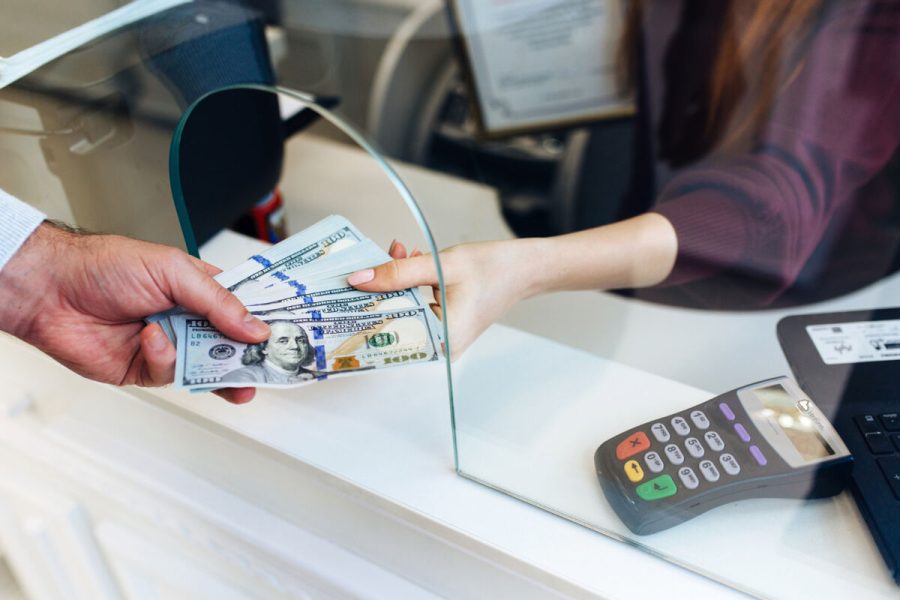How can hospitality businesses reduce wait times and elevate customer experiences? In an industry where seamless service and personalized interactions is important, the quest to enhance customer experience in hospitality is ever-evolving. From data-driven insights to innovative technologies, the strategies and technologies shaping customer experiences in the hospitality sector are constantly evolving.
In this article, we discuss the pivotal role of reducing wait times and elevating customer experiences, unveiling practical approaches, and exploring the latest tech solutions transforming the hospitality landscape.
Analyzing Data Trends For Customer Experience In Hospitality
Data analytics plays a pivotal role in shaping customer experiences in hospitality. By harnessing the power of data, businesses can gain valuable insights into wait times and customer satisfaction, ultimately driving strategic improvements. Analyzing data trends allows hospitality businesses to make informed decisions that directly impact customer experiences, leading to enhanced satisfaction and loyalty.

Statistics reveal compelling correlations between average wait times and customer retention in the hospitality sector. According to recent studies, customers are more likely to return to establishments with shorter wait times, emphasizing the critical nature of efficient service delivery.
For instance, a survey conducted by Statista found that around 38% of customers are willing to wait for no more than 30 minutes. On the other hand, only around 3% are willing to take it further for up to two hours. These insights underscore the significance of addressing wait times as a key factor in customer retention and overall business success.
Innovative Technologies for Enhanced Customer Experience In Hospitality
Innovative technologies are revolutionizing customer experiences in hospitality, offering unprecedented opportunities for businesses to elevate service quality and efficiency. From advanced queue management systems to personalized service solutions, technology-driven improvements are reshaping the landscape of wait time management and service personalization.
Queue Management Systems: Modern queue management systems are empowering hospitality businesses to streamline customer flow, optimize wait times, and enhance operational efficiency. These systems leverage real-time data and analytics to dynamically manage queues, enabling businesses to allocate resources effectively and minimize customer wait times.
Service Personalization: Technology has enabled hospitality businesses to personalize service delivery, catering to the unique preferences and needs of individual customers. For instance, advanced customer relationship management (CRM) platforms allow businesses to capture and analyze customer data, enabling personalized interactions and tailored service offerings.
Strategies for Reducing Wait Times in Hospitality
Hospitality businesses can implement practical strategies to minimize wait times and optimize service delivery. By focusing on queue management systems, staffing optimization, and efficient service delivery, businesses can proactively address the challenge of prolonged wait times, ultimately elevating customer satisfaction and loyalty.
Queue Management Systems: Implementing advanced queue management systems enables businesses to orchestrate customer flow, allocate resources effectively, and reduce wait times. These systems leverage real-time data and analytics to dynamically adjust service allocation, ensuring a balanced and efficient customer journey.
Staffing Optimization: Strategic staffing plays a crucial role in minimizing wait times and delivering exceptional service. Additionally, cross-training staff members to handle diverse roles and responsibilities can further enhance operational flexibility, enabling businesses to adapt swiftly to fluctuating customer volumes and maintain efficient service standards.
Efficient Service Delivery: Efficiency in service delivery is paramount to reducing wait times and enhancing customer experiences. By streamlining operational processes, businesses can ensure swift and seamless service, mitigating potential delays and customer dissatisfaction. Leveraging technology to automate routine tasks, such as order processing and payment transactions, can significantly expedite service delivery, contributing to overall customer satisfaction and loyalty.
Customer-Centric Service Enhancements
Prioritizing customer satisfaction through personalized service is a strategic imperative for businesses seeking to differentiate themselves and foster long-term loyalty. By tailoring experiences to individual preferences and needs, businesses can create a lasting impact on customer satisfaction, driving positive reviews and repeat patronage.
Personalized Interactions: Encouraging personalized interactions between staff and customers can significantly enhance the overall service experience. By empowering staff to engage in genuine and personalized interactions, businesses can create a welcoming and attentive atmosphere, fostering positive emotional connections with customers.
Tailored Service Offerings: Offering tailored service offerings that cater to diverse customer preferences and dietary requirements can elevate the overall dining or hospitality experience. By providing customizable menu options, personalized recommendations, and accommodating special requests, businesses can demonstrate a commitment to meeting individual needs, fostering a sense of inclusivity and attentiveness.
Anticipatory Service: Anticipating and fulfilling customer needs before they are expressed is a hallmark of exceptional service. Anticipatory service not only reduces customer wait times but also demonstrates a deep understanding of customer needs, reinforcing a positive perception of the business and its commitment to customer satisfaction.
Adopting Best Practices for Seamless Customer Journeys
Adopting best practices for seamless customer journeys is essential for businesses to deliver exceptional experiences and foster customer loyalty. By streamlining processes and touchpoints, businesses can ensure that every stage of the customer journey is optimized for efficiency and satisfaction, ultimately contributing to a positive overall experience.

Efficient Reservation and Booking Systems: Implementing user-friendly and efficient reservation and booking systems is crucial for ensuring a seamless customer journey. Seamless reservation systems not only contribute to a positive initial interaction but also set the stage for a smooth and organized customer experience upon arrival.
Integrated Communication Channels: Maintaining integrated communication channels allows businesses to engage with customers at every touchpoint, from pre-arrival to post-departure. Integrated communication channels enable businesses to anticipate and address customer needs, fostering a sense of attentiveness and care throughout the customer journey.
Streamlined Service Touchpoints: Streamlining service touchpoints, such as check-in processes, order placements, and payment transactions, is essential for ensuring a frictionless customer journey. Streamlined service touchpoints contribute to a positive overall experience, leaving customers with a lasting impression of efficiency and professionalism.
Conclusion
From efficient queue management to anticipatory service, each touchpoint in the customer journey presents an opportunity to deliver exceptional experiences. By adopting best practices and streamlining processes, hospitality businesses can not only minimize wait times but also foster customer loyalty and positive reviews. Ultimately, the commitment to elevating customer experiences is a strategic investment that drives success and sets businesses apart in the hospitality sector. Reach out to find out more.



